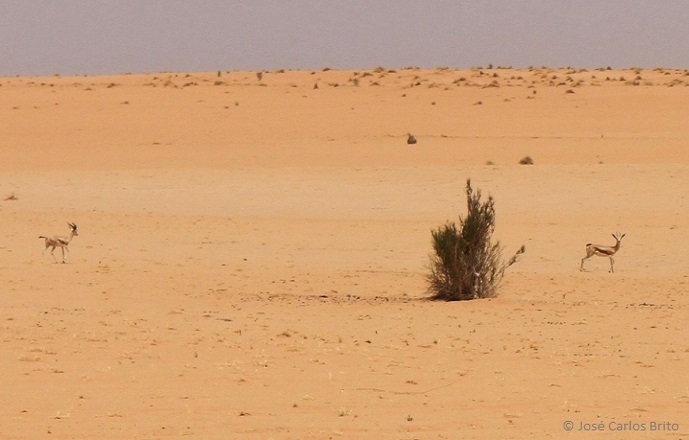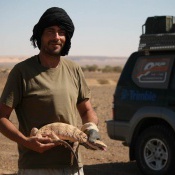Understanding genetic diversity and population structure of endangered Gazella cuvieri and Gazella dorcas from Morocco using multiple molecular markers and a non-invasive sampling approach
North Africa is a vast and wild territory hosting high levels of biological diversity but remains poorly studied because of limited accessibility. Large and highly mobile mammalian groups like ungulates and carnivores still occur in this area, and are often listed as endangered. Virtually nothing is known about the genetic population structure and thus the factors that might influence in their conservation. In this project, we will focus on Moroccan ungulates using three model species (the Dorcas and the Cuvier’s gazelles and Barbary Sheep) to address questions related with levels of population structure and the importance of contemporary fragmentation processes for its conservation, both in-situ and ex-situ, by using both mtDNA and microsatellite markers. In addition, we will also develop new and improve current noninvasive methods to study these and other North African ungulates with wide applications in molecular ecology studies, forensics, and captive-breeding programs.
Team
Principal Investigator
Researchers
State
Concluded
Proponent Institution
ICETA-UP (CIBIO-InBIO)
Funded by
ECWP - Emirates Center for Wildlife Propagation
Dates
2014 (Duration: 1 year)


